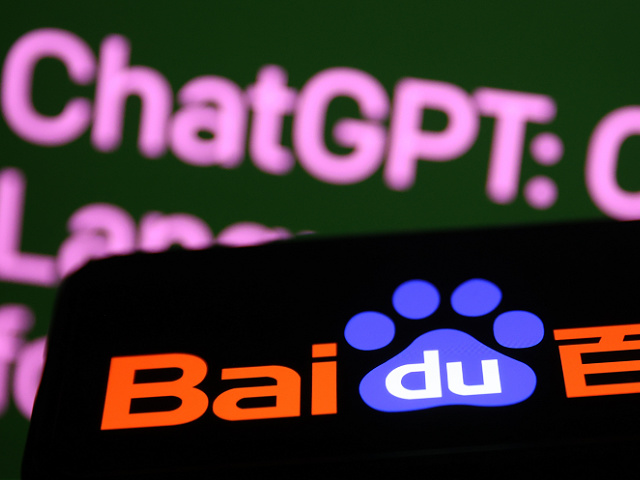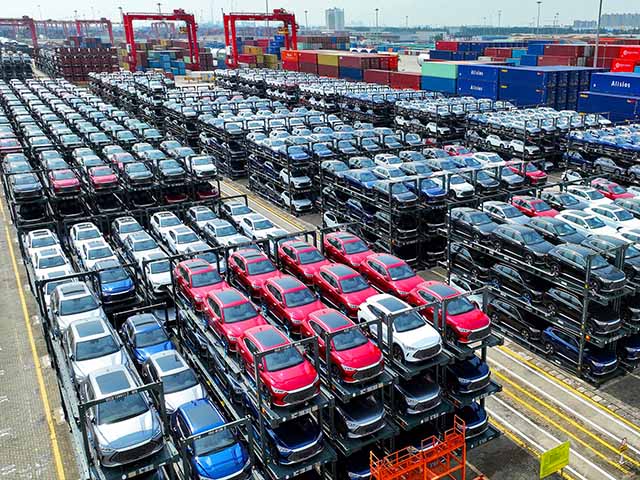Billionaire Elon Musk paid a surprise visit to China in a successful bid to secure Chinese government approval for the automatic driving features of his Tesla electric vehicles (EV).
On Sunday, Musk posted a photo on X, the social media platform he owns, of himself meeting with Chinese Premier Li Qiang, whom he described as an old friend:
Honored to meet with Premier Li Qiang.
We have known each other now for many years, since early Shanghai days. pic.twitter.com/JCnv6MbZ6W
— Elon Musk (@elonmusk) April 28, 2024
Musk took a good deal of ribbing in the responses to his post for having such a chummy relationship with one of the most authoritarian and censorious regimes in the world when he styles himself as a defender of free speech. His purpose in visiting China was straightforward enough and had nothing to do with freedom of expression: he wanted Tesla to be among the first companies to secure official approval for its Internet-enabled autonomous driving functions.
China has an entity known as the China Association of Automobile Manufacturers (CAAM), a fusion of government regulators and industry leaders that holds an advisory and certification role with automobiles. CAAM, which has existed for decades, was most recently tasked with certifying Internet-connected automobiles for compliance with China’s data security laws.
To a considerable extent, this certification is a dog-and-pony show for global political consumption because wary foreign governments regard Chinese smart cars as rolling spy machines that can harvest massive amounts of data about both their drivers and immediate surroundings and forward that information to Chinese military intelligence for analysis. The regime in Beijing saw this apprehension cutting into its overseas automobile sales and decided to put on a big show of “certifying” its cars as secure bastions of complete privacy.
CAAM was required to analyze foreign vehicles, as well, and, since Tesla vehicles are packed with cameras that watch both the cockpit and all of the surrounding space, Musk evidently felt it was important to fly to China for a meeting with his old friend Li Qiang to ensure Teslas received CAAM’s endorsement.
The South China Morning Post (SCMP) noted that Beijing has long been wary of the risks to its own security that Tesla cars pose, and, while China remains the second-largest market for Musk’s EVs, there is some consumer resistance as well:
In April of 2021 the company faced a social media backlash from Chinese customers after a woman in a T-shirt emblazoned with the words “brake malfunction” and a Tesla logo jumped on top of a Tesla car on display at the Shanghai Auto Show, to draw attention to a crash involving her Model 3 she blamed on the company. Tesla later released the data log of the specific Model 3 to the owner, bowing to pressure from the market regulator.
The US carmaker did not attend the Shanghai car show last year and is absent from the Auto China Show in Beijing that started last Thursday because of worries about similar incidents, according to people with knowledge of the matter.
Beijing has restricted the use of Teslas by military staff and employees of key state-owned companies because of security concerns since 2021. The Chinese-made Model 3s and Model Ys are also barred from accessing some areas, such as airports.
CAAM gave Tesla its seal of approval for data privacy, and, following Musk’s visit to Beijing, Chinese web search giant Baidu announced a deal to provide mapping and navigation data for Tesla’s full self-driving (FSD) system. No such deal would have been possible without the endorsement of the Chinese Communist Party, which tightly controls Internet navigational data.

(Jakub Porzycki/NurPhoto via Getty Images)
Chen Jinzhu, CEO of a consulting firm called Shanghai Mingliang Auto Service, told the SCMP that CAAM’s seal of approval and the Baidu deal will give Tesla customers more “confidence in driving them on the streets of China.”
“Since the CAAM is a government-backed auto industry association, the review certainly will have an influence on relevant authorities’ policymaking,” said Chen.
Adding to that sense of regime approval, Tesla Vice President of External Relations Grace Tao was allowed to write an op-ed for the state-run People’s Daily, in which she touted FSD and other automatic driving systems as key to the future of electric vehicles.
Other Chinese state media organs gleefully used Musk’s visit for propaganda purposes. As it does whenever American business leaders meet with Chinese officials, the state-run Global Times framed Musk’s visit as a repudiation of U.S. criticism of China’s trade practices, particularly the current controversy about “overcapacity.”
Overcapacity was a major topic of discussion when Treasury Secretary Janet Yellen visited Beijing in early April. The fear is that China’s heavily subsidized industries have built up massive inventories of cheap products, which China can export to other countries in a bid to crush their manufacturing bases.
In the case of EVs, China clearly has the power to wipe out the American EV industry, which has been lavishly underwritten by U.S. taxpayers, but it cannot produce vehicles that American consumers want to buy.
China can sell EVs for a fraction of the price that American automakers charge thanks to cheap (and slave) labor, a supply of cheap components, and government subsidies investigated in 2023 by the European Union as an anti-competitive racket. “Overcapacity” is an especially hot topic when it comes to EVs because the auto industry, and its unionized workforce, wields so much influence with the government.

BYD electric cars waiting to be loaded on a ship are stacked at the international container terminal of Taicang Port at Suzhou Port in China’s eastern Jiangsu Province on September 11, 2023. (AFP via Getty Images)
The Global Times claimed Musk’s trip to China disproved the “overcapacity hype” because Musk clearly thinks he can sell plenty of Teslas in China, but that should be impossible if Chinese companies are over-building EVs that sell for a third or less of Tesla’s price.
The Chinese Communist paper touted Musk’s praise for “the hard work and intelligence” of Chinese workers at his Shanghai Gigafactory and a Tesla corporate statement that said the company will “continue to work hard in China, develop together with the industry in areas such as AI, electric vehicles and energy storage, accelerate the implementation of clean energy and autonomous driving technologies, and turn our beautiful vision into reality.”
“Chinese analysts said Musk’s visit highlights the importance of the Chinese market to many American companies as they are enhancing ties, unlike politicians in Washington who always hype up anti-China rhetoric,” the Global Times said in another smug editorial on Sunday.
The Global Times noted that while American and European consumers have been resistant to EVs, they have been embraced with gusto by Chinese consumers, who are reportedly now buying more EVs than gasoline-powered vehicles.
Musk’s successful visit to China caused Tesla stock prices to surge more than 15 percent on Monday, giving the company its best day on Wall Street since March 2021. The CAAM endorsement and especially the Baidu data-sharing deal evidently led investors to believe that some of China’s restrictions on driving Teslas near government and military facilities might be lifted, a development that would doubtless cause Tesla sales to improve substantially in China.
Interestingly, sales dropped sharply in the first quarter of 2024 for BYD, Tesla’s major global rival for EV sales. BYD had surpassed Tesla as the world’s top EV seller until the dizzying 43-percent falloff in sales at the beginning of 2024. Tesla sales fell by a little more than 20 percent in the same period.
The flip-flop at the top of the EV charts was evidently driven by soft Chinese consumer demand, especially among lower-income car buyers. BYD and its Chinese rivals fought hard for the discount end of the market, so, when the sputtering Chinese economy caused demand to sag for cheaper cars, Tesla weathered the storm better as a premium brand with a flashy appeal to wealthy customers.
This could make overcapacity even more of a problem if BYD has a vast inventory of vehicles to export at fire-sale prices, although the Chinese company claims it can turn its sales around in 2024, optimistically projecting a net 20-percent increase in annual units sold by the time 2025 comes around.





Comments are closed.